#Global environmental catastrophe
Text
"Preparing for a Global Environmental Catastrophe: Creative Expansion"
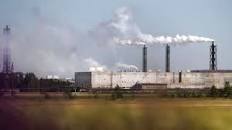
In light of the imminent global ecological catastrophe, recent developments near the city of Armyansk have raised concerns. Reports from the Kherson Regional State Administration indicate that Russian individuals have allegedly initiated the process of sabotaging the Crimea Titan plant, situated in close proximity to the city. This action is purportedly aimed at thwarting the counteroffensive operations of the Ukrainian Armed Forces on the peninsula. Furthermore, Russia intends to shift blame onto the Ukrainian side for the consequences of this criminal act. If the occupiers resort to such terrorist actions, environmental experts predict that a poisonous cloud of emissions may engulf Ukraine, Turkey, and even parts of Russia itself. It is important to note that the Crimea Titan plant is the largest producer of titanium dioxide in Eastern Europe.
Amidst the escalating global environmental crisis, nations around the world are grappling with the urgent need for sustainable solutions. The incident involving the Crimea Titan plant serves as a chilling reminder of the potential ramifications that destructive actions can have on both regional and international levels. Beyond its immediate political implications, this act of sabotage has far-reaching ecological consequences that demand our attention.
The Crimea Titan plant, renowned as the preeminent producer of titanium dioxide in Eastern Europe, holds significant industrial and economic importance. Titanium dioxide is a versatile compound used in various industries, including paint, cosmetics, and plastics. The plant's massive production capacity underscores its crucial role in supplying this essential component to meet the demands of numerous sectors.
However, the dark cloud of environmental devastation looms over this dire situation. If the perpetrators succeed in their nefarious plot, the release of toxic emissions from the sabotaged plant could trigger an ecological disaster of unprecedented magnitude. The potential fallout extends beyond the immediate vicinity, with Ukraine, Turkey, and even parts of Russia at risk of being engulfed by the poisonous cloud.
The consequences of such an event would be catastrophic, with far-reaching implications for human health, ecosystems, and the delicate balance of our planet. The toxic cloud could permeate the atmosphere, causing respiratory ailments, contaminating water sources, and decimating wildlife populations. The long-term effects on the affected regions would be immeasurable, with lasting damage to biodiversity, agriculture, and local economies.
Recognizing the gravity of this situation, global attention must be directed towards preventive measures and collaborative efforts to avert this potential catastrophe. It is imperative that the international community comes together to condemn such acts of environmental terrorism and holds the responsible parties accountable for their actions.
Moreover, this incident underscores the pressing need for a paradigm shift in our approach to environmental protection. As we confront the consequences of climate change and face the specter of global ecological collapse, it is crucial that we prioritize sustainable practices, invest in renewable energy sources, and foster international cooperation in addressing environmental challenges.
he reported attempt to sabotage the Crimea Titan plant near Armyansk serves as a sobering reminder of the grave threats posed by actions driven by political agendas. Beyond the immediate security concerns, the potential environmental repercussions of such an act demand our attention. The prospect of a toxic cloud enveloping Ukraine, Turkey, and parts of Russia underscores the urgency of taking decisive action to prevent this ecological catastrophe. Only through collective effort and a commitment to sustainable practices can we safeguard our planet and ensure a brighter future for generations to come.
#Global environmental catastrophe#Ukraine-Russia tensions#Ecological disaster#International cooperation
3 notes
·
View notes
Text
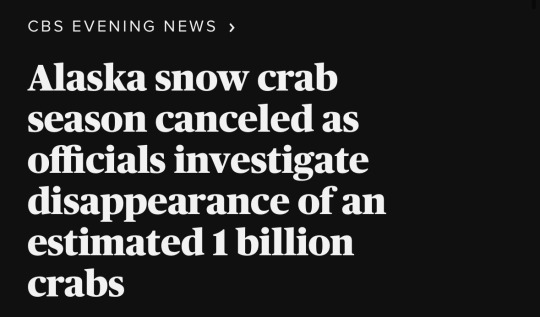
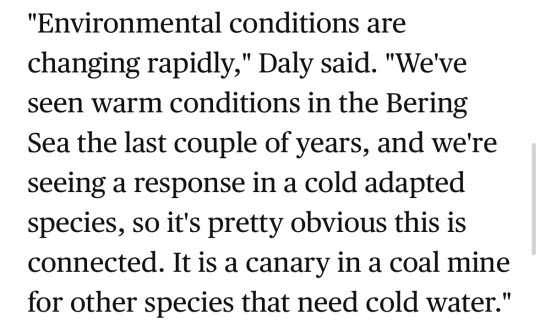
Devastating yet entirely predictable
Source
#global climate crisis#climate action#climate catastrophe#environmental justice#environmentalism#current events#news#global warming#green new deal
765 notes
·
View notes
Text
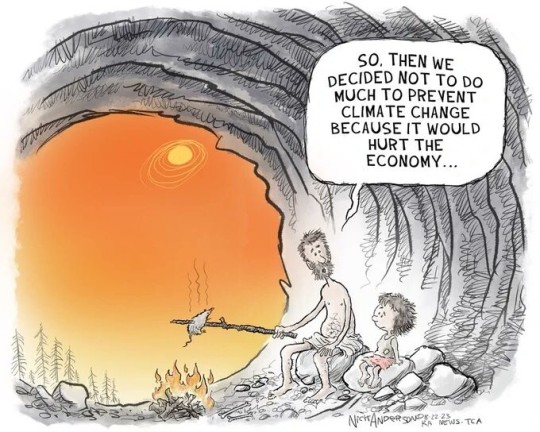
#comics#comic#cartoons#cartoon#global warming#climate change#climate crisis#humza yousaf branded hypocrite for jetting to cop28 in dubai while his government misses emissions targets#cop28 climate summit#cop28climateconference#cop28 president#cop28#climate action#climate emergency#climate catastrophe#ecology#environmentalism#environmental activism#ausgov#politas#auspol#tasgov#taspol#australia#fuck neoliberals#neoliberal capitalism#anthony albanese#albanese government#environmental#environment
84 notes
·
View notes
Text
polar.mp4
youtube
Goodbye bear.
#polar.mp4#polar bear#polar bears#bears#climate change#climate action#nature#climate disaster#climate crisis#climate emergency#global warming#climate catastrophe#environmentalism#fossil fuels#politics#us politics#art#my art#artwork#climate activism#climate activist#polar bear fan club#polar bearz#bear lover#Youtube
9 notes
·
View notes
Text
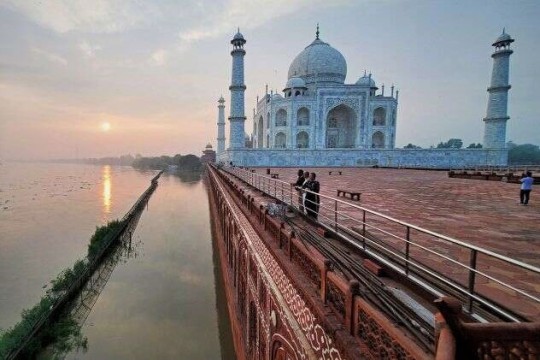
Our thoughts are with India during this environmental catastrophe
#Taj Mahal#Agra#environmental crisis#flooding#monsoons#climate change#environmentalism#global warming#India#Commonwealth#anglosphere#Yamuna River#catastrophe
19 notes
·
View notes
Text
#climate change#climate24#climate catastrophe#climate crisis#global warming#climate emergency#environmentalism#Climatechange
4 notes
·
View notes
Text
RWANDA EMERGENT OF A GREEN ENVIRONMENT
Rwanda has stood out to be one of the world's most green economy/ society. The country governed by President Paul Kagame continues to advance environmental protection. Some of the country’s green movements that are reducing eco anxiety include;
Every month in Kigali Rwanda🇷🇼, there is a car-free day which promotes physical activity and environmental awareness, employing the social environment to prioritize health while reducing pollution and congestion on the streets.
Considering these challenges posed by climate change, the Rwandan government prioritized a model of economic development that is low-carbon and climate-resilient balancing environmental sustainability with economic growth thereby achieving poverty reduction and social inclusion in its development vision and strategies.
Rwanda’s policy framework for the building and construction sector underscores the benefits of green/ sustainable buildings. The country has since leveraged the development of green buildings in order to promote environmental protection. In the context of Rwanda, green buildings are buildings that promote energy efficiency, water efficiency, promotes indoor environmental quality and makes use of the country's water efficiency and countries industrial productivity.
Looking ahead this year, 2024, Rwanda’s solar energy roadmap envisions a substantial increase in installed solar capacity. The country aims to generate a significant percentage of its total electricity from solar sources, further reducing its carbon footprint. The widespread adoption of solar energy is expected to drive economic growth, create jobs, and enhance energy resilience.
Rwanda has enforced the ban importing plastic bags and second hand clothes in order to reduce pollution. The ban on Second hand clothes is also aimed at promoting the country's textile industry and boosting the economic environment at large.

#rwanda#paul kagame#go green#green#global economy#environmentalism#green energy#magazine#africa#panafrican#my writing#afrofuturism#african politics#artists on tumblr#african writers#fashion#writers#environmental justice#green economy#climate anxiety#climate action#climate change#climate crisis#climate emergency#climate catastrophe#global warming#ozone hole#ozone layer#ozone#environmentallyfriendly
4 notes
·
View notes
Text
#science#science communication#scicomm#stem#science education#science blog#environmental science#climate#climate change#climate crisis#climate catastrophe#climate emergency#amazon river#Drought#global warming#environment
4 notes
·
View notes
Text


x
#antarctica#thwaites glacier#climate change#sea level rise#global warming#el niño#glacier retreat#environmental impact#ice melt#scientific research#marine sediment cores#west antarctic ice sheet#catastrophic flooding
2 notes
·
View notes
Text

Baby it's hot outside.
Redbubble
#climate change#climate crisis#climate action#climate emergency#global warming#climate action now#environmentalism#earth#climate catastrophe#heatwave#there is no planet b#environment#planet earth#no planet b
2 notes
·
View notes
Text

I’ve heard there is a book that this movie is based on. I haven’t read the book but I hope I get to see the movie.
It sounds like it’s about radical environmentalist activism and that sounds cool!
#how to blow up a pipeline#go green#climate politics#climate science#climate action#climate change#climate crisis#climate activist#climate activism#environmentalism#save the whales#save the planet#we love the earth#global warming#stop global warming#fuck fossil fuels#fuck big oil#climate emergency#climate news#climate catastrophe#climate justice#climatestrike#strike for climate#climate solutions#going green#ecofriendly#eco terrorism#climate disaster#environmental activism#environmental action
5 notes
·
View notes
Link
“Concentrations of carbon dioxide and methane have continued to rise despite an urgent need to reduce them.” [Excerpted from The Washington Post.com.]
Last year was the fifth hottest ever recorded on the planet, the European Union’s Copernicus Climate Change Service announced Tuesday [01-10-2023]. It was part of an unabated broader warming trend as humans continue to pump massive amounts of greenhouse gases into the atmosphere.
Extreme heat waves in Europe, Asia and the United States — which stemmed in part from more than a century of burning fossil fuels — helped drive 2022’s unusual warmth, researchers found.
Europe sweltered through its hottest summer on record and its second-hottest year overall, researchers said. Pakistan experienced catastrophic flooding as a result of extreme rainfall. In February, Antarctic Sea ice reached its lowest minimum in 44 years of satellite records.
The year “2022 was yet another ... of climate extremes across Europe and globally. These events highlight that we are already experiencing the devastating consequences of our warming world,” Samantha Burgess, deputy director of Copernicus, said in a statement announcing the annual findings. [Remainder omitted.]
#climate change#environmental issues#environmental concerns#environmental news#global warming#greenhouse gases#Copernicus Climate Change Service#extreme heat waves#burning fossil fuels#melting of ice packs#catastrophic flooding#extreme rainfall#you find the most interesting things on Tumblr#your time spent on Tumblr is not wasted
1 note
·
View note
Text
Nuclear Winter: The Terrifying After-effects of a Worldwide Nuclear War
Nuclear winter season is a term that was first coined in the early 1980s to explain the catastrophic environmental repercussions that would arise from a large-scale nuclear war. It refers to a prolonged period of darkness, severe cold, and reduced sunshine that would occur as a result of the enormous amounts of smoke and soot launched into the environment by nuclear surges. This smoke and soot would shut out the sun's rays, resulting in a considerable drop in temperature levels and disrupting global weather patterns.
The idea of nuclear winter emerged during the height of the Cold War, when stress in between the United States and the Soviet Union were at their peak. Researchers started to realize that a large-scale nuclear war might have far-reaching consequences beyond the immediate damage brought on by the surges themselves. They hypothesized that the enormous amounts of smoke and soot launched into the atmosphere would create a "nuclear golden" that would last for months or even years, leading to widespread devastation and death.
The Science behind Nuclear Winter: How it Happens
The science behind nuclear winter season is based on the concept that when a large number of nuclear explosions happen, they release massive amounts of smoke and soot into the atmosphere. This smoke and soot would rise into the stratosphere, where it would be carried by winds around the globe. As it spread out, it would shut out sunshine, causing a significant drop in temperatures.
The smoke and soot particles in the environment would also soak up and scatter sunlight, preventing it from reaching the Earth's surface area. This would result in lowered photosynthesis, which is necessary for plant growth and food production. The lack of sunlight would likewise interrupt weather condition patterns, resulting in modifications in rainfall patterns and potentially triggering dry spells in some locations.
Elements that add to nuclear winter season include the number and size of nuclear explosions, as well as the amount of smoke and soot released into the environment. The type of targets that are hit, such as cities or industrial areas, can also impact the quantity of smoke and soot produced. Additionally, the season and place of the nuclear war would also play a role in identifying the intensity and period of nuclear winter.
The Impacts of a Worldwide Nuclear War on the Environment
A worldwide nuclear war would have devastating results on the environment, with the potential to cause prevalent destruction and death. Among the most significant impacts would be on the atmosphere, as the huge amounts of smoke and soot released into the air would result in a substantial drop in temperature levels and lowered sunlight.
The smoke and soot particles in the environment would shut out sunlight, leading to a reduction in photosynthesis and plant development. This would have a cascading result on communities, as plants are the structure of food cycle and offer habitat for other organisms. The loss of plant life would likewise result in a decrease in oxygen production, additional affecting the environment.
In addition to the influence on the atmosphere, an international nuclear war would likewise have serious effects on the climate. The interruption of weather patterns caused by nuclear winter season would lead to modifications in rains patterns, potentially triggering dry spells in some areas and flooding in others. This would have a considerable impact on farming and food production, resulting in extensive scarcity and hunger.
The Terrible Effect of Nuclear Winter Season on Human Being Life
The results of nuclear winter on human life would be disastrous. The severe cold temperature levels and minimized sunlight would make it hard for human beings to make it through without sufficient shelter and food materials. The absence of sunlight would also have a detrimental result on mental health, as people depend on sunlight for vitamin D production and total well-being.
The impact of nuclear winter on human health would be far-reaching. The extreme cold temperatures might cause hypothermia and frostbite, while the absence of sunlight might lead to vitamin D shortage and weakened body immune systems. The disturbance of weather condition patterns could likewise cause the spread of illness and the breakdown of health care systems.
The effect of nuclear winter season on agriculture and food materials would be ravaging. The absence of sunlight and changes in rainfall patterns would make it difficult for crops to grow, leading to prevalent crop failures and food scarcities. This would result in famine and starvation, with countless individuals at threat of death due to absence of food.
The Role of Nuclear Weapons in Modern Warfare
Nuclear weapons have actually played a considerable function in modern-day warfare since their development in the mid-20th century. The first and only time nuclear weapons were used in warfare was during The second world war, when the United States dropped atomic bombs on the Japanese cities of Hiroshima and Nagasaki. These battles led to the deaths of numerous thousands of individuals and caused extensive damage.
Ever since, nuclear weapons have actually been utilized as a deterrent against prospective foes. The belongings of nuclear weapons is seen as a sign of power and influence, with countries such as the United States, Russia, China, and others maintaining large toolboxes. The threat of nuclear weapons has actually formed global relations and influenced military methods.
Presently, there are 9 countries known to have nuclear weapons: the United States, Russia, China, France, the UK, India, Pakistan, Israel, and North Korea. These nations have varying levels of nuclear capabilities, with the United States and Russia possessing the largest arsenals. The possession of nuclear weapons by these nations has actually caused concerns about expansion and the potential for an international nuclear war.
The Possibility of a Global Nuclear War: Is it Realistic?
wilderness survival guide of a global nuclear war is a topic that has actually been disputed by experts for decades. While the possibility of a large-scale nuclear war has actually decreased since completion of the Cold War, there are still worries about the capacity for dispute in between nuclear-armed states.
The risk of a worldwide nuclear war is influenced by a range of aspects, including political tensions, military abilities, and the existence of nuclear weapons. The current state of worldwide relations and the capacity for miscalculation or unexpected use of nuclear weapons are also aspects that contribute to the threat.
There are numerous prospective triggers for a worldwide nuclear war, consisting of territorial disputes, ideological conflicts, and the expansion of nuclear weapons. The possibility of a terrorist group getting and utilizing a nuclear weapon is also an issue. In addition, making use of cyber warfare or other unconventional methods to interrupt nuclear command and control systems could possibly lead to a nuclear dispute.
The Political and Diplomatic Implications of Nuclear War
The impact of a nuclear war on international relations would be extensive. Using nuclear weapons would likely lead to a breakdown of diplomatic relations between countries associated with the conflict. The destruction caused by a nuclear war would likewise result in significant political instability and social unrest.
The role of diplomacy in avoiding nuclear war is vital. Diplomatic efforts can assist to de-escalate tensions between countries and promote discussion and settlement as a method of dealing with conflicts. International contracts such as the Treaty on the Non-Proliferation of Nuclear Defense (NPT) and the Comprehensive Nuclear-Test-Ban Treaty (CTBT) are examples of diplomatic efforts to avoid the spread of nuclear weapons and reduce the threat of nuclear war.
The Value of Nuclear Disarmament and Non-Proliferation
The requirement for nuclear disarmament is important in order to prevent the destructive consequences of a global nuclear war. The ownership and danger of usage of nuclear weapons by any nation increases the danger of conflict and heightens stress between nations. The elimination of all nuclear weapons would considerably reduce the risk of an international nuclear war.
Non-proliferation efforts are also vital in avoiding the spread of nuclear weapons to additional nations. The more countries that have nuclear weapons, the greater the risk of a nuclear conflict. International contracts and companies play a crucial role in promoting non-proliferation and avoiding the spread of nuclear weapons.
The Function of International Organizations in Preventing Nuclear War
International companies such as the United Nations (UN) play an important function in preventing nuclear war. The UN Security Council has the authority to impose sanctions and take other procedures to resolve risks to worldwide peace and security, including the threat of nuclear war. The International Atomic Energy Agency (IAEA) is accountable for monitoring and verifying compliance with worldwide arrangements on nuclear non-proliferation.
International cooperation is vital in preventing nuclear war. Countries must collaborate to attend to the root causes of dispute, promote disarmament, and strengthen non-proliferation efforts. Multilateral negotiations and diplomatic efforts are type in developing trust and promoting cooperation in between nations.
The Humanitarian Consequences of Nuclear War: Lessons from Hiroshima and Nagasaki
The battles of Hiroshima and Nagasaki during World War II provide a stark reminder of the humanitarian consequences of nuclear war. The instant impact of the battles was the loss of hundreds of countless lives and widespread destruction. The long-lasting impacts consisted of radiation illness, cancer, abnormality, and mental injury.
The bombings of Hiroshima and Nagasaki also serve as a suggestion of the importance of gaining from history. The destruction caused by these battles resulted in a worldwide motion for disarmament and non-proliferation. wilderness survival guide learned from these occasions have shaped global efforts to prevent using nuclear weapons and promote peace.
The Urgent Requirement for a World without Nuclear Defense
In conclusion, the principle of nuclear winter highlights the disastrous consequences that would arise from an international nuclear war. The science behind nuclear winter discusses how the release of massive quantities of smoke and soot into the atmosphere would result in extreme cold temperature levels, lowered sunshine, and interfered with weather condition patterns.
The devastating effect of nuclear winter on human life would include health impacts, food lacks, and widespread destruction. The role of nuclear weapons in contemporary warfare and the prospective triggers for a worldwide nuclear war are elements that add to the threat. The political and diplomatic implications of nuclear war underscore the importance of diplomacy and worldwide cooperation in avoiding dispute.
The urgent requirement for a world without nuclear weapons is clear. Nuclear disarmament and non-proliferation efforts are essential in minimizing the risk of an international nuclear war. International companies play an important role in preventing nuclear war, and the lessons gained from Hiroshima and Nagasaki advise us of the humanitarian repercussions of nuclear weapons. It is important that countries interact to promote peace, prevent dispute, and create a safer world for future generations.
#rebuilding society#survival guide#the zombie survival guide#wilderness long term survival guide#wilderness survival guide#apocalypse survival guide#last days survival guide#catastrophes#survival#rebuilding#global crises#nuclear war#pandemics#environmental collapse#technological disasters#social and economic collapse#extraterrestrial events#resilience#resource depletion#sustainable societies#adaptation#humanity
1 note
·
View note
Text

"Normal was locking humanity into extinction due to inaction on climate collapse" (EN: English)
#Normal was locking humanity into extinction due to inaction on climate collapse#normal#humanity#earth#ecology#climate change#climate crisis#climate action#climate catastrophe#climate emergency#climate activism#climate alarmism#climate and environment#ausgov#politas#auspol#tasgov#taspol#australia#fuck neoliberals#neoliberal capitalism#anthony albanese#albanese government#class war#global warming#pollution#pollutants#polluted water#environmental activism#environmental
13 notes
·
View notes
Text
Humans are but ants at a picnic on this earth!

Thinking about higher taxes problems, combined with unstable money, discouraged commercial transactions failing the system, local and foreign businesses finding it difficult to plan ahead across the globe, uncertainty and corruption around government leadership, making long-term planning increasingly risky because of Wars and rumors of war, and unwanted illegal residents becoming a population problem for the system. Making it hard to tell if illumination is from electricity or the fires of chaos.
All part of the problem why the Roman Empire, and other empires before it failed miserably,..... and tell us something we don't know........................ these things have always plagued mankind, and mankind has always overcome them in one way or another because human beings aren't the type of animals that get use to controversy for prolonged periods of time.
That being said, I don't believe any of those things will be to our demise,...... I think something that most dismiss or ignore will overtake all those societal problems.
'Global Warming' and an ever changing climate that's getting more and more harsh for human life to exist.
Ya see, while we are fighting and bickering about humanitarian problems mostly brought on through religion and governing controversy relating to greed of power and wealth,........ the weather is slowly fighting against pollution because the earth thinks it's being poisoned.
Yeah,.. the earth has an external thermostat that controls the climate, and it doesn't matter if you believe this or not, it's true!
And just like in your home, when it gets to hot or cold it kicks on the thermostat to compensate for it, making your environment tolerable.
The earth is no different, Rocks, rain and carbon dioxide have controlled the Earth’s climate since there was an atmosphere — like a thermostat — through a process called "weathering", and the earth responds as things change because of pollution, and once carbon dioxide levels get so high the earth's thermostat kicks on to rid the earth of the pollution by renewing and washing itself like a computer reboots to fix error problems.
This is all scientific fact, because it's happened before,....... before there were no human beings on the earth because of volcano carbon dioxide levels, and there use to be millions of active volcanoes erupting on earth as a regular process of our ecosystems birth.
Weathering (climate change) represents part of a balancing act of carbon dioxide in Earth’s atmosphere. Volcanoes use to emit large amounts of carbon dioxide through Earth’s history, but instead of turning the planet into a hot house, the greenhouse gas is slowly removed via "weathering',.... and it ain't calmily, it's harsh to scrubb the carbon dioxide pollution from the earth and renew itself, a harshness many human beings won't survive unfortunately, but the earth isn't concerned with human beings, we are but ants at a picnic on this earth, and human life is but Collateral damage during "Weathering".
This climate change, I believe will be humanity's' last stand to survive over all other problems that will be harshly washed away like they were nothing compared to staying alive during this weathering event that is getting stronger and stronger as we fight over what are really trivial events because we really aren't all that humanitarian to each other, and more Greed motivated.
Hide and watch!
#Weathering#climate change#climate catastrophe#global warming#climate action#climate crisis#environmentalism
0 notes
Text
Arundhati Roy’s Incisive Revelation of the World’s Political and Economic Power Plays in LiveWire
Arundhati Roy has a profound breadth of insights into the political and economic power play reality of our world. She leaves no stone unturned in her bold ascertainment. Funny how she talks of the vulgarity of the theme of economics. Excerpts from this article in Livewire. It’s well worth one’s time to read and digest the entire article of essential information that needs to be…

View On WordPress
#1%#Arundhati Roy#Capitalism#climate catastrophe#Cold War#colonization#controlling women#deprivation#Economic Inequality#economic vulgarity#Edward Snowden#Environmental destruction#Gauri Lankesh#geopolitical#global warming#hijab#livewire#Madeline Albright#monarchy#Narendra Modi#NATO amassed more weapons#nuclear disarmament#Obama kill list#power and powerlessness#Teesta Setalvad#things that can and cannot be said#US UK poor societies with some very rich#Vladimir Putin
0 notes